Table of contents
- Abstract
- Financial, Economic Development, Jobs, and Environmental Motivation
- Energy Efficiency Labels and Minimum Energy Performance Standards
- EE Labels and MEPS are not Enough to Save the Earth from Climate Tipping Points
- Ghana on Behalf of Africa Asking the Montreal Protocol to Stop Dumping
- Access to Next-Generation Technology at Competitive Prices
Abstract
This paper describes how the Ghana Energy Commission and the Environmental Protection Agency’s National Ozone Unit have joined forces in a comprehensive strategy to access and implement low-global warming potential (GWP) and energy-efficient cooling technologies that protect the Earth’s climate and stratospheric ozone layer. This strategy, in line with the objectives of the Montreal Protocol on Substances that Deplete the Ozone Layer (Montreal Protocol): 1) integrates upgraded energy efficiency labels with refrigerant metrics; 2) strengthens minimum energy performance standards (MEPS); 3) prohibits the dumping of used cooling appliances; 4) uses the OzonAction informal Prior Informed Consent (iPIC) mechanism to facilitate communications among national authorities on the import and sale of appliances containing or using obsolete refrigerants scheduled for phase out or phase down under the Montreal Protocol; and 6) asks Parties to the Montreal Protocol to enact and enforce regulations that help stop the dumping of used and new cooling equipment in export-market countries wanting to leapfrog obsolete appliances that waste energy and force climate change.
Financial, Economic Development, Jobs, and Environmental Motivation
Leapfrogging high-GWP hydrofluorocarbon refrigerants and accelerating the hydrofluorocarbon (HFC) phase down can be accomplished at lower Montreal Protocol Multilateral Fund (MLF) investment cost and higher benefits to citizens in Ghana and other Article 5 (A5) (mostly developing-country) Parties. The lower MLF cost and higher benefits would be the result of consumer electricity savings spent locally on quality of life, less air pollution, and health care costs from cleaner power. Ultimately, this would result in increased local jobs and profits from recycling the materials of retired cooling equipment. It would also result in destroying the ozone-depleting and greenhouse gas refrigerants in local cement kilns while earning carbon credits. The strategy developed in Ghana can be promptly implemented in any of the Montreal Protocol A5 Parties that are not manufacturing cooling equipment and in some of the A5 Parties manufacturing or assembling cooling equipment.
Energy Efficiency Labels and Minimum Energy Performance Standards
Experts worldwide agree that: 1) any added cost of super-efficient cooling appliances marketed at fair and equitable prices is rapidly paid back in savings in electricity use; 2) cooling equipment energy efficiency has social benefits including fewer blackouts, cleaner air, better health and longer lives, and protection against climate change; 3) money saved on electricity and health care is spent locally where it circulates in the local economy increasing prosperity and quality of life; and 4) phase down of obsolete HFC greenhouse gas refrigerants as required under the Kigali Amendment to the Montreal Protocol avoids additional climate forcing and reduces the likelihood that we pass tipping points and lose control of the climate system in the near term.
Despite the obvious benefits of next-generation cooling appliances, market penetration of high-efficiency cooling appliances using climate-friendly refrigerants has been low, particularly in developing countries in regions such as Africa. The inability of individual customers and their governments to act in self and national interest, respectively, is called a “market failure” and is usually caused by too much focus on first cost of appliance purchase and not enough concern for the future costs of powering the appliances.[1] Ghana successfully demonstrated removal of the first-cost purchase barrier by introducing a rebate scheme in 2012 which transformed the refrigeration appliance market. That rebate scheme could be strengthened to take into account refrigerant climate forcing for accelerated Kigali compliance and climate benefits.
To resolve this market failure, countries should adopt energy efficiency labels (EE Labels) to help buyers choose the appliance with lowest life-cycle ownership costs.[2] Countries should also implement minimum energy performance standards (MEPS) to prevent marketing of appliances that punish unsuspecting buyers with unaffordable energy costs. Such appliances have other attributes, such as using high-GWP refrigerants, that are contrary to the national interests of clean air, treaty obligation fulfillment, and affordable and reliable power.
EE Labels and MEPS are not Enough to Save the Earth from Climate Tipping Points
Others in this journal and elsewhere explain that increasing electrification, urbanization, and wealth, as well as global warming and urban heat islands, are drastically increasing the demand for cooling even as citizens struggle to stop greenhouse gas emissions before the Earth’s climate experiences tipping points beyond which there may be no recovery within human time dimensions. Drastic 2022 fossil fuel price increases from supply chain disruption make energy efficiency more economic. Energy Efficiency also helps protect against unbalanced trade accounts and domestic inflation.
For example, the Government of Ghana projects that temperatures are likely to increase nationwide in Ghana by at least 3°C by 2080. In response to forecasts and climate warnings, the Ghana Energy Commission is striving for higher cooling appliance energy efficiency.[3] At the same time, the Ghana Environmental Protection Agency’s National Ozone Unit is working to phase out the ozone-depleting hydrochlorofluorocarbon (HCFC) refrigerants and preparing to leapfrog and phase down obsolete, climate-forcing HFC refrigerants. Furthermore, the Ghana Energy Commission and Environmental Protection Agency are coordinating to integrate refrigerant transition with energy efficiency, including plans to ask the United Nations Development Programme (UNDP), which is an implementing agency for the Montreal Protocol Multilateral Fund (MLF), to request funding from the MLF to demonstrate accelerated phaseout and phasedown, yielding savings for both individuals and society. Subsidies on super-efficient cooling appliances with lower-GWP refrigerants while prohibiting inefficient appliances with obsolete refrigerants including R-22 and R-410A plus economic and technical assistance to promote local assembly that will make efficient products available and affordable.
Ghana is proposing to strengthen its EE Label with disclosure of refrigerant and global warming potential (GWP) along with a warning that high-GWP HFC refrigerants will be become scarce and expensive as the Montreal Protocol phases them down.
Ghana on Behalf of Africa Asking the Montreal Protocol to Stop Dumping
Environmental dumping is defined as “the practice of exporting products to another country or territory that: 1) contain hazardous substances, 2) have environmental performance lower than is in the interest of consumers or that is contrary to the interests of the local and global commons, or 3) can undermine the ability of the importing country to fulfil international environmental treaty commitments.”
Essentially, from the perspective of recipient countries, environmental dumping involves “obsolete” products. “Obsolete” in this context is defined as appliances with no value in use, even if still in working order, taking into consideration self- and public interest. Appliance obsolescence occurs when a next-generation product can be purchased and operated for lower annual costs and/or when the operation of the old product exposes owners and the global community to unacceptable environmental and safety risks.
Ghana long ago determined that dumping of used cooling appliances from foreign sources, when considering the already significant resources needed for domestic inspection and enforcement, overwhelms local authority capacities.[4] It also punishes buyers with unaffordable electricity costs and worn-out equipment without replacement parts. Worse still, it is expensive and a diversion of needed financial resources for communities to properly dispose of the obsolete equipment containing toxic materials now prohibited from manufacture. The perverse truth is that developed countries do not intervene to prevent the dumping of used appliances in African and other developing countries because such interventions require that the developing countries internalize the cost of proper disposal and manufacturing-country/company profits from sales. The availability of used appliances at low prices exacerbates the temptation of buyers to consider only first cost and ignore high operating costs. The winners are wealthy citizens in developed countries who avoid the cost of proper disposal and the unprincipled merchants who export obsolete appliances for sale to unsuspecting buyers in developing countries. The losers are the buyers in developing countries tricked into low first-cost obsolete appliance purchases and everyone else that may be grievously harmed by toxic pollutants in air, water, and soil. Such buyers, and the communities they live in are also put at increased risk from the added climate burdens from such appliances, which help put temperatures on the path to exceed survivability levels for the most vulnerable, during appliance use and after the appliance is discarded.[5]
In 2021, Ghana on behalf of all of Africa submitted a Conference Room Paper (CRP) to the Parties to the Montreal Protocol, asking the Parties to support specific actions to stop the harmful dumping of new and used, inefficient refrigeration and air conditioning appliances using obsolete ODS and HFC refrigerants.[6] Recommended actions in the CRP include:
- Participating in the OzonAction iPIC mechanism. OzonAction, as part of the UNEP’s Law Division, administers the iPIC platform. Using this platform,[7] countries can communicate securely and confidentially, and ascertain the nature of shipments with their trading partners before any consignments of ODS and HFC or related mixtures, or appliances and components that contain or use such substances, are shipped into their territories in order to avoid illicit or unwanted shipments.
- Supporting a Montreal Protocol Technology and Economic Assessment Panel (TEAP) investigation into why it is profitable to dump appliances that have unaffordable life-cycle ownership costs in A5 Parties.
- Requesting that Parties support OzonAction engagement in and strengthening of its involvement in UNEP’s Green Customs Initiative to discourage dumping of ODS and HFC equipment. The Green Customs Initiative develops tools and training for customs officers and border control officers to monitor and facilitate legal trade, and to detect and prevent illegal trade in the commodities covered by trade-related Multilateral Environmental Agreements such as the Montreal Protocol. Re-engagement and strengthening of this partnership can provide useful tools for Parties grappling with the surges in dumped cooling appliances.
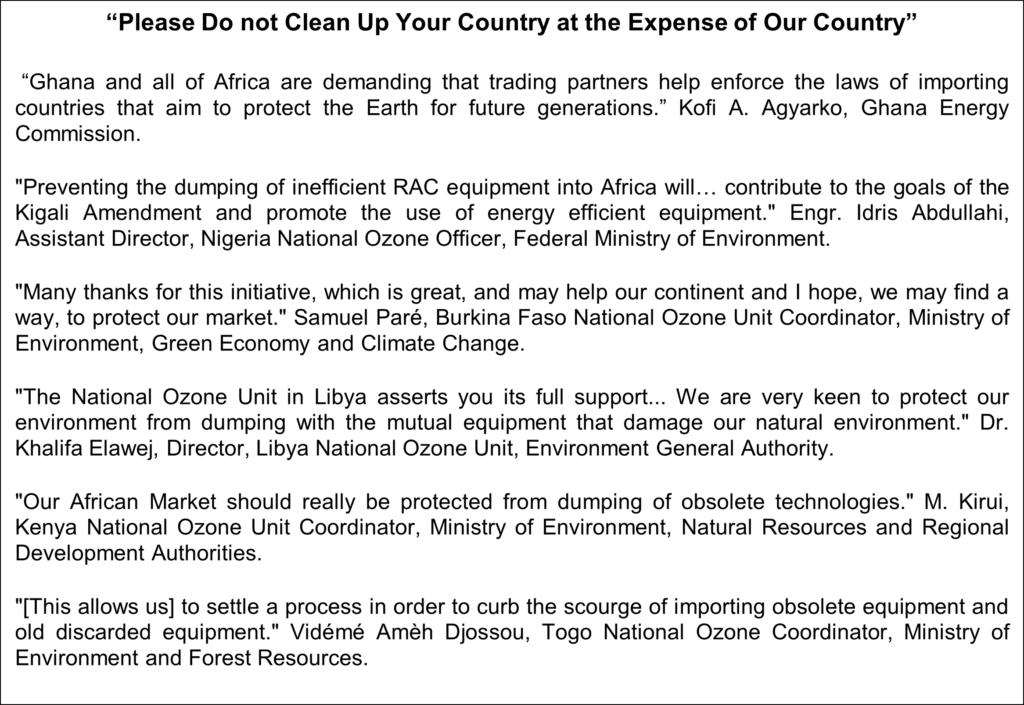
Access to Next-Generation Technology at Competitive Prices
In addition to stopping appliance dumping, Ghana will gain access to next-generation technology at affordable prices through a three-part strategy: 1) supporting bulk procurement and buyers clubs to aggregate demand for new applications coupled with campaigns to replace older cooling equipment that was inefficient when purchased and then poorly installed and serviced for sustainable energy efficiency; 2) training cooling equipment technicians for efficient equipment installation, servicing, and retrofitting with incentives for new installations and replacements outside of the cooling seasons in support of year-round employment; 3) and partnering with the Bank of Africa and other regional institutions for financing paid back in the cooling season based on savings guaranteed by the equipment manufacturers. The ultimate goals of this strategy include ensuring that cooling appliances are designed for African climates, that these appliances are manufactured by African workers, and that these appliances are solid in African markets resulting in profits to African owners and partners.
Please find hereunder a short video describing the environmentally harmful dumping of used and new cooling equipment, narrated by Kofi Agyarko, Director, Renewable Energy, Energy Efficiency, & Climate Change (REEECC), Ghana Energy Commission.
Additional Environmentally Harmful Cooling Equipment Dumping References
Additionally, please find below a timeline providing key events and publications in the modern history of environmentally harmful product dumping. This timeline is followed with the text of a speech by Kofi Agyarko. Mr. Agyarko made this speech when he introduced the Conference Room Paper (CRP), on behalf of Ghana and the rest of Africa, to the Parties to the Montreal Protocol. In the speech, Mr. Agyarko asks the Parties, on behalf of Ghana and the rest of Africa, to support specific actions to stop the harmful dumping of new and used, inefficient refrigeration and air conditioning appliances using obsolete ODS and HFC refrigerants, at the 44th Meeting of the Open-Ended Working Group of the Parties to the Montreal Protocol convened in Bangkok, Thailand, 11-16 July 2022.
Timeline: click here
Speech: click here
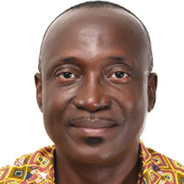
Kofi A. Agyarko
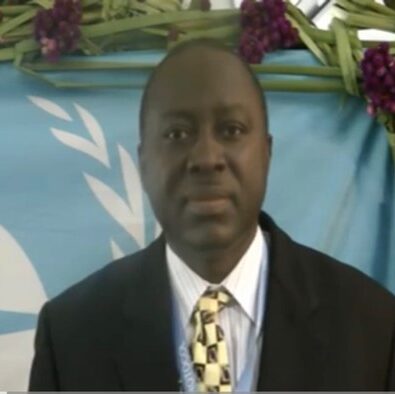
Emmanuel Osae-Quansah

Hubert Zan
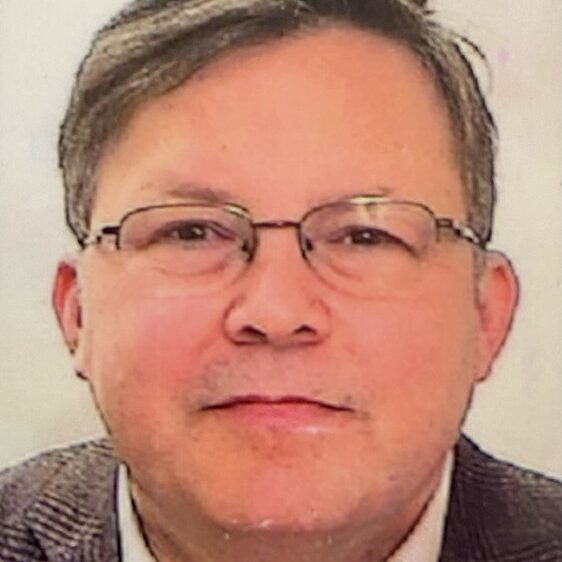
Richard “Tad” Ferris
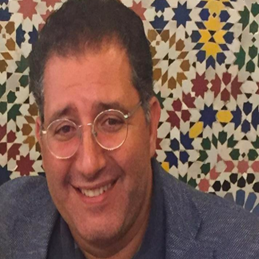
Mohamed Rida Derder
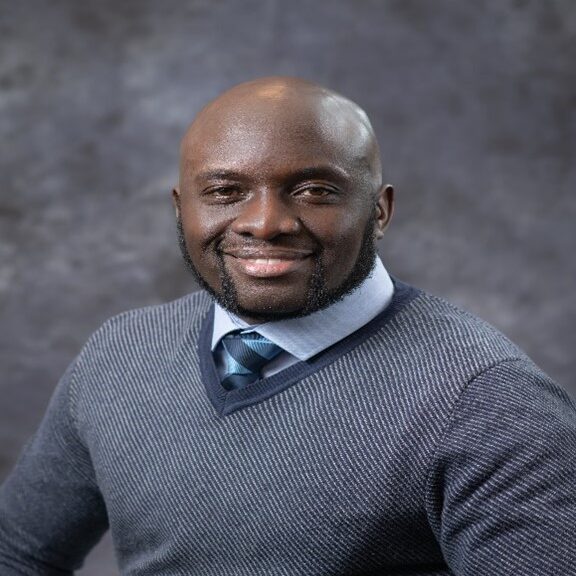
Leslie Olonyi Bosire
References
[1] Agyarko, K.A., et. al. (2021) The Importance of Stopping Environmental Dumping in Ghana: The Case of Inefficient New and Used Cooling Appliances with Obsolete Refrigerants, Duke Environmental Law & Policy Forum XXXII:51–106, 73.
[2] Andersen, S.O., Ferris, R., Picolotti, R., Zaelke, D., Carvalho, S. & Gonzalez, M. (2018) Defining the Legal and Policy Framework to Stop the Dumping of Environmentally Harmful Products, Duke Environmental. Law & Policy Forum XXIX:1–48, 30.
[3] Cool Coalition (2021) Opportunities to Address Used Cooling Product Imports into Africa, 4.
[4] Fleming, P. (9 September 2020) A Flood of Polluting Air Conditioners Hampers Africa’s Climate Efforts, YaleEnvironment360.
[5] United Nations Environment Programme (2021) In Western Africa, a push for eco-friendly appliances (last visited 24 May 2022).
[6] United Nations Environment Programme (2021) Draft decisions for consideration by the Conference of the Parties to the Vienna Convention at its twelfth meeting (part II) and the Thirty-Third Meeting of the Parties to the Montreal Protocol, UNEP/OxL.Conv.12(II)/3/Add.1, Annex.
[7] See OzonAction, Informal Prior Informed Consent (iPIC) Online (last visited 24 May 2022).
